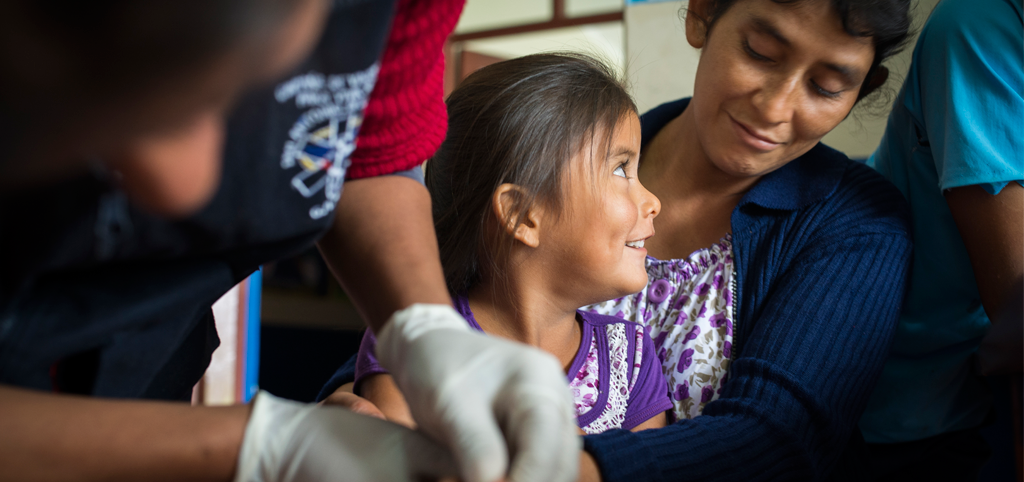Preventing Mother-to-Child Transmission a Key Factor in the Control of Chagas Disease
The XIV Workshop on Chagas Disease focuses on reducing congenital infection, the mode of transmission that currently generates the largest number of new acute cases of the disease
08.03.2018
Every year more than 15,000 babies worldwide are infected at birth with Trypanosoma cruzi, the parasite that causes Chagas disease; fewer than 20% of them are diagnosed promptly and receive treatment. According to experts who gathered today at the XIV Workshop on Chagas Disease, vertical transmission of the infection from a mother to her child is currently the route that causes the largest number of new acute cases and is, therefore, key to controlling Chagas disease in Latin America and elsewhere. The Workshop was organised by the Barcelona Institute for Global Health (ISGlobal), an institution supported by the ”la Caixa” Banking Foundation, in collaboration with the Mundo Sano Foundation.
According to the Pan American Health Organization (PAHO), there are an estimated 6 million people in the world today living with Chagas infection. Since 1.12 million of those affected are women of childbearing age, the risk of new congenital infections is high. The parasitic infection can be transmitted from a mother to her child during pregnancy or childbirth, with a risk of transmission ranging from three to five percent.
Experts who attended today’s workshop highlighted the fact that treating women with benznidazole before they become pregnant is a preventive measure that has been shown to reduce the risk of mother-to-child transmission. Sergio Sosa-Estani of the Drugs for Neglected Diseases Initiative (DNDi) presented the findings of a multicentre study, which show that the risk of vertical transmission of parasites to the newborn baby is 25 time higher when the infected patient has not been treated prior to becoming pregnant. Treatment also reduces the risk of the morbidity and mortality associated with infection in these women, and therefore works as a secondary prevention mechanism.
“A recommendation to treat young women of childbearing age would have an huge impact on health, in terms of both preventing new cases due to congenital transmission and reducing the risk of complications in women with chronic Chagas infection” was the opinion of Joaquim Gascon, director of ISGlobal's Chagas Initiative and Head of the International Health Department at Barcelona’s Hospital Clínic. “Given the success of control measures in blood banks and the positive effects of programmes aimed at reducing vector-borne transmission, mother-to-child transmission is the challenge that remains to be overcome in the immediate future.”
Marcelo Abril, executive director of Mundo Sano, explained: “In 2018, one of our priorities at the Mundo Sano Foundation is to support the countries in the Americas—PAHO members—in their efforts to reduce the vertical transmission of Chagas disease. To further that goal, we recently signed a framework agreement with PAHO that will focus our efforts on the implementation of the PAHO ETMCT-Plus initiative, a framework for eliminating, by 2020, mother-to-child transmission of four diseases: HIV, syphilis, hepatitis B and Chagas disease. The strategy is based on a range of actions and interventions that target newborns as well as women before and during their pregnancy and in the postpartum period."
“In recent years, the efforts of governments and other actors working with the PAHO have achieved good results, particularly in vector control, universal screening of donor blood and control of congenital transmission of various diseases, including Chagas, in the framework of the strategy for controlling priority diseases, such as HIV/AIDS and hepatitis B. But there is still a long way to go before we see more and better means to control all the routes of transmission and can expand access to diagnosis and treatment in general” was the message of the Global Chagas Disease Coalition.
XIV Workshop on Chagas Disease Publication (in Spanish)



